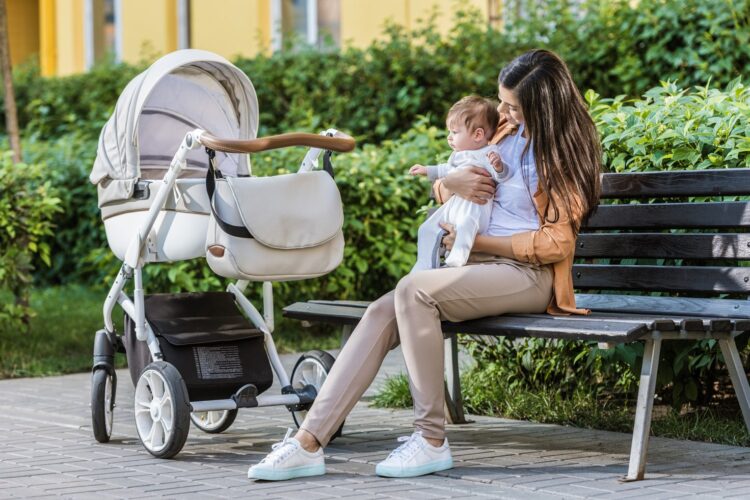Helping your little one discover the world outside is a memorable milestone. Fresh air, sunshine, and the hum of nature can offer benefits for growth and bonding.
Many new parents wonder when it’s safe to start. Here’s a warm guide to help you plan those first outdoor adventures confidently.
Table of Contents
Key Points
- Begin outdoor strolls once your baby’s health is stable.
- Dress your little one for the weather.
- Start with short outings to gauge comfort.
- Baby carriers provide flexibility for early walks.
- Timing depends on your child’s readiness and local conditions.
Health and Weather Considerations for First Walks
Newborns are delicate, and their readiness for outside exposure depends on health and external factors. If your baby is full-term and healthy, walks can start as early as a week or two after birth.
Pediatricians recommend avoiding crowded areas during the first month to minimize exposure to germs. This is especially important in colder seasons when illnesses are more prevalent.
The weather plays a crucial role. Avoid taking your little one outside during extreme temperatures. Mild weather is ideal, with temperatures between 15°C to 25°C being most comfortable. Rain, snow, and strong winds should also be avoided.
Weather checklist for walks:
- Avoid extremes ─ Wait for mild weather without harsh heat or bitter cold.
- Dress appropriately ─ Use breathable layers for warm days and snug coverings for cooler weather.
- Protect from the sun ─ Babies under six months shouldn’t have sunscreen, so use hats, light clothing, or stroller shades.
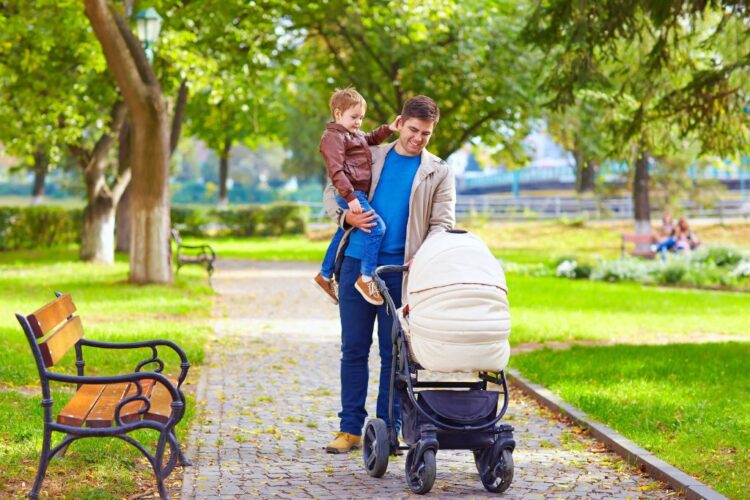
How Baby Carriers Simplify Early Outdoor Strolls
Baby carriers are a fantastic way to begin outings. They allow close contact, which comforts your little one, and free your hands for practicality. A good carrier offers ergonomic support, ensuring your baby’s hips and spine remain in a healthy position. Carriers also make navigating uneven terrain or crowded areas easier compared to strollers.
When selecting a carrier, consider models with adjustable straps, breathable fabrics, and weight distribution for comfort. Always ensure proper fit to keep your baby’s airway clear and avoid overheating during long walks. For parents with back issues, soft-structured carriers are especially beneficial as they evenly distribute weight.
When Can Your Baby Spend Time Outside?
The first few weeks at home might feel overwhelming, but even newborns benefit from short periods outdoors if conditions are safe. It’s natural to worry about exposure to the elements or overstimulation. The key lies in moderation and preparation.
Suggested starting ages for outdoor time:
- 0–2 weeks ─ Limit outings to your yard or balcony for fresh air. Short sessions help acclimate both you and your child.
- 2–4 weeks ─ Quiet walks around the neighborhood can provide fresh air and light sensory stimulation.
- 1–3 months ─ Gradually increase outdoor time, visiting local parks or other serene environments. Keep a watchful eye on your baby’s comfort and reactions.
Steps to Make Early Walks Enjoyable
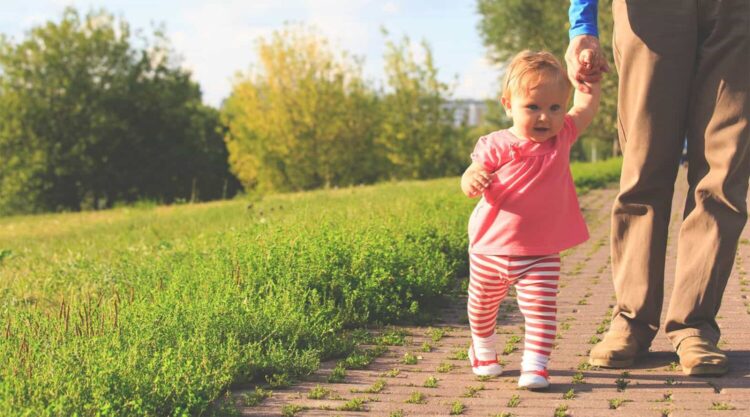
Venturing outdoors with your baby should feel rewarding and enjoyable for both of you. Preparation is key to ensuring smooth outings.
- Plan ahead ─ Start by checking the weather and gathering essentials like diapers, wipes, and feeding supplies. Having a packed diaper bag will save you stress during the walk.
2. Start short ─ Begin with outings lasting 15 to 20 minutes. Gradual exposure will help your baby adjust to the new environment without becoming overwhelmed.
3. Comfort is key ─ Whether you choose a stroller or carrier, make sure it’s well-suited for your child’s age and size.
4. Choose calm locations ─ Parks, gardens, or tree-lined streets can create a soothing environment. Avoid areas with loud noises or large crowds until your baby becomes more accustomed to outdoor stimuli.
Benefits of Outdoor Time for Babies
Fresh air offers more than just a pleasant experience. Spending time outside supports physical and emotional development. For parents, it can also provide a much-needed change of scenery and relaxation.
Developmental advantages include:
- Improved sleep patterns ─ Exposure to natural daylight helps regulate circadian rhythms, leading to better sleep at night.
- Strengthened immunity ─ Gradual exposure to the environment can help bolster your child’s immune system over time.
- Enhanced sensory exploration ─ The sights, sounds, and smells of nature engage your baby’s senses, encouraging curiosity and cognitive development.
Essential Gear for Outdoor Walks
Investing in the right tools can make your outings smoother. From carriers to diaper bags, having reliable gear ensures comfort and convenience.
Top items for outdoor strolls:
- A sturdy, lightweight stroller suitable for your baby’s age.
- Soft, adjustable baby carriers for hands-free mobility.
- Portable diaper bags with multiple compartments for easy organization.
- Weather-appropriate covers or blankets for temperature regulation.
- Sun hats and breathable fabrics to protect sensitive skin.
Choosing quality products that suit your lifestyle can make every outing a stress-free experience.
Addressing Common Concerns for Outdoor Outings
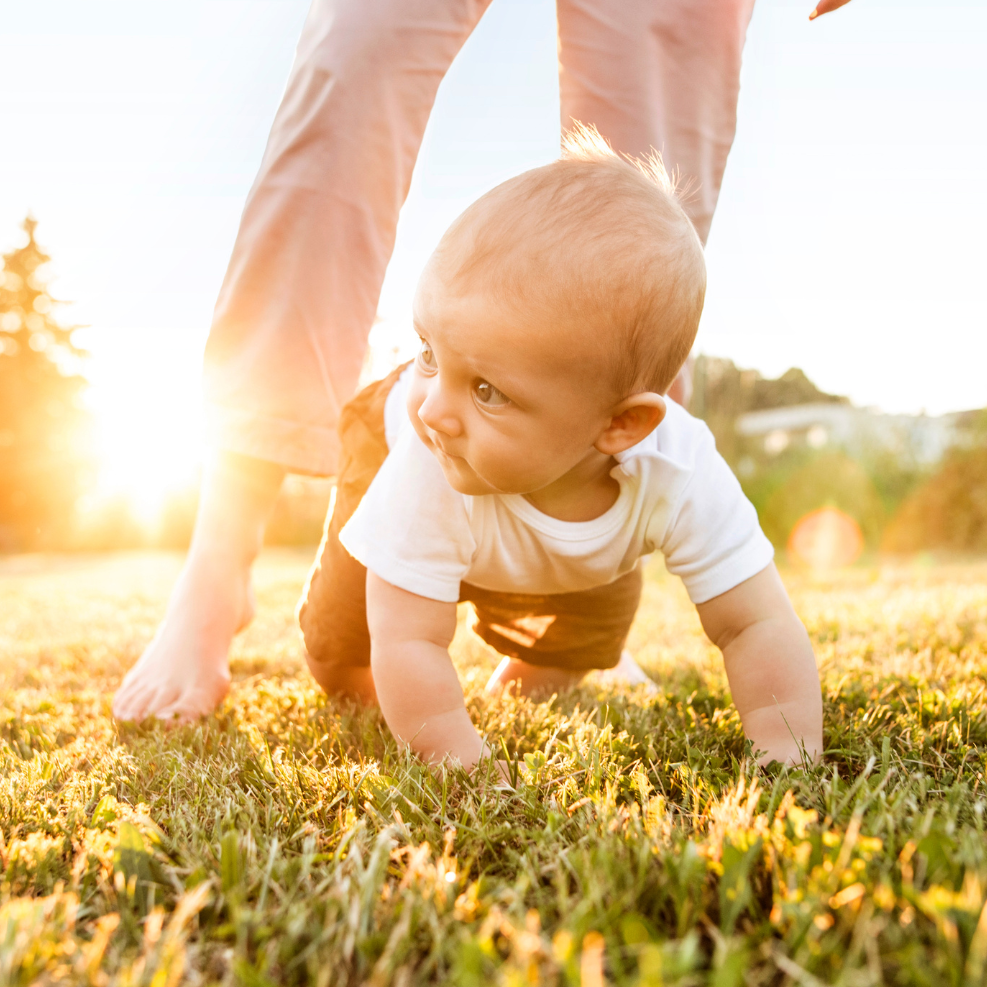
Parents often worry about temperature, overstimulation, and safety during outdoor time. These are valid concerns, but preparation can ease most challenges.
- Cold weather tips ─ Wrap your baby in layers, including hats, mittens, and warm footed onesies. A foot muff or stroller cover adds extra insulation.
- Hot weather tips ─ Stick to shaded areas, and avoid outings during peak sun hours. Keep your baby hydrated and dressed in lightweight, breathable fabrics.
- Noise and stimulation ─ Begin with quiet settings and gradually introduce more dynamic environments. Notice cues like crying or fussiness, which may signal overstimulation.
How to Build Confidence for Longer Walks
Once you feel comfortable with shorter trips, you can gradually extend outings and introduce new environments. The key is pacing yourself and paying attention to your baby’s cues.
- Vary destinations ─ Parks, nature trails, or even a quiet café patio can offer fresh scenery for both of you.
- Invite support ─ Walking with another caregiver or friend can make the experience less daunting and more enjoyable.
- Follow your baby’s cues ─ If they show signs of fatigue or discomfort, shorten the outing to maintain a positive experience.
Newborns and Nature ─ Why It’s Worth Starting Early
Early exposure to nature helps create a strong bond between your child and the natural world. Quiet moments outside can also serve as precious bonding opportunities.
Spending time in natural surroundings helps instill a sense of calm and curiosity. The gentle rustle of leaves, birdsong, and the sensation of fresh air can create sensory memories that contribute to emotional development. As your baby grows, they will start associating outdoor time with comfort and exploration.
Preparing for Unexpected Situations During Walks
No outing is complete without a little unpredictability. Preparing for the unexpected can save you from unnecessary stress.
Essentials for every walk:
- Wet wipes for quick clean-ups.
- An extra set of clothes in case of spills or diaper leaks.
- A lightweight blanket for comfort during impromptu stops.
- A pacifier or favorite toy to soothe fussiness.
Staying flexible ensures that minor hiccups won’t derail your plans.
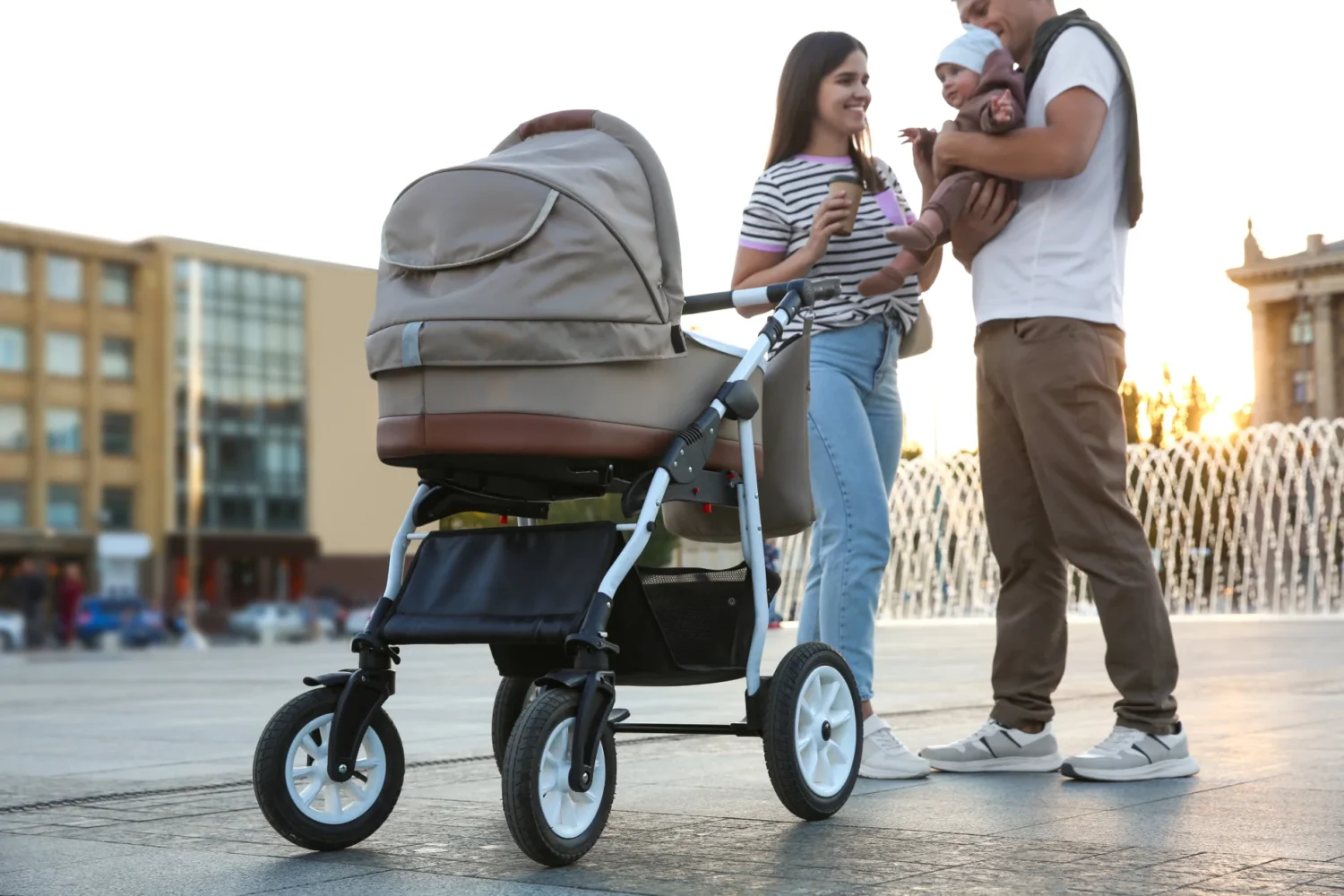
Conclusion
The right time to venture outdoors depends on your baby’s health and your comfort level. Start small, use tools like baby carriers for ease, and gradually extend the duration as confidence grows. Early outdoor experiences create precious memories and set the foundation for a lifelong love of nature.
Trust your instincts and enjoy this new chapter together!
